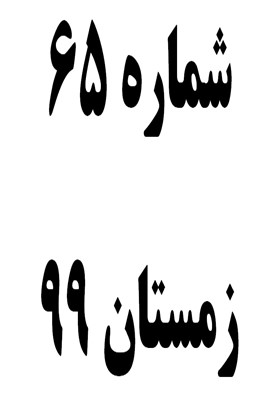پیشبینی اضطراب رقابتی بر اساس سبکهای فرزندپروری و مقایسه آن در گروههای جنسیتی دانشجویان ورزشکار استان تهران
محورهای موضوعی : علوم تربیتی
مصطفی نعیمی
1
*
![]() ,
زهره رافضی
2
,
زهره رافضی
2
1 - کارشناس ارشد روانشناسی بالینی، گروه روانشناسی، دانشکده علوم تربیتی و روانشناسی، دانشگاه علامه طباطبایی، تهران، ایران
2 - استادیار، گروه روانشناسی، دانشکده علوم تربیتی و روانشناسی، دانشگاه علامه طباطبایی، تهران، ایران
کلید واژه: اضطراب رقابتی, سبکهای فرزندپروری, دانشجویان ورزشکار,
چکیده مقاله :
هدف این پژوهش پیشبینی اضطراب رقابتی بر اساس سبکهای فرزندپروری و مقایسه آن در گروههای جنسیتی دانشجویان ورزشکار بود. این مطالعه از نظر هدف کاربردی و از نظر روش اجرا توصیفی بود. جامعه پژوهش دانشجویان رشته تربیت بدنی استان تهران در سال 1398 بودند که تعداد 225 نفر از آنها با روش نمونهگیری در دسترس بهعنوان نمونه انتخاب شد. دادهها با پرسشنامههای اضطراب حالت رقابتی مارتینز و همکاران (1990) و سبکهای فرزندپروری ادراکشده بوری (1991) جمعآوری و با روشهای ضرایب همبستگی پیرسون، رگرسیون چندمتغیری و تحلیل واریانس یکراهه در نرمافزار SPSS-22 تحلیل شدند. یافتهها نشان داد که دانشجویان ورزشکار دختر و پسر در ادراک اضطراب رقابتی تفاوت معناداری داشتند، اما در سبکهای فرزندپروری تفاوت معناداری نداشتند. همچنین، سبکهای مقتدرانه و آسانگیر با اضطراب شناختی رابطه منفی و معنادار و سبک مستبدانه با اضطراب شناختی رابطه مثبت و معنادار داشت. سبک مقتدرانه با اضطراب بدنی رابطه منفی و معنادار و سبک مستبدانه با اضطراب بدنی رابطه مثبت و معنادار داشت، اما سبک آسانگیر با آن رابطه معناداری نداشت. سبکهای مقتدرانه و آسانگیر با اعتماد به خود رابطه مثبت و معنادار و سبک مستبدانه با اعتماد به خود رابطه منفی و معنادار داشت. علاوه بر آن، سبکهای فرزندپروری بهطورمعناداری توانایی پیشبینی اضطراب شناختی و اعتماد به خود دانشجویان ورزشکار را داشتند، اما توانایی پیشبینی اضطراب بدنی آنان را نداشتند. بر اساس نتایج برای کاهش اضطراب رقابتی میتوان به والدین بهترتیب استفاده از سبکهای فرزندپروری مقتدرانه و آسانگیر و عدم استفاده از سبک فرزندپروری مستبدانه را توصیه کرد.
The aim of this research was predicting competitive anxiety based on parenting styles and comparing it in gender groups of athletic students. This study in terms of purpose was applied and in terms of implementation method was descriptive. The research population was physical education College students of Tehran province in the year 2019, which 225 people were selected by available sampling method as a sample. Data were collected with questionnaires of Martines competitive state anxiety (1990) and Buri perceived parenting styles (1991) and analyzed by Pearson correlation coefficients, multivariate regression and one-way variance analysis in SPSS-22 software. The findings showed that male and female athletic students did significant difference in perceived competitive anxiety, but didn’t significantly differentiate in parenting styles. Also, authoritative and permissive styles had a significant negative relationship with cognitive anxiety and authoritarian style had a significant positive relationship with cognitive anxiety. Authoritative style had a significant negative relationship with physical anxiety and authoritarian style had a significant positive relationship with physical anxiety, but the permissive style didn’t have a significant relationship with it. Authoritative and permissive styles had a significant positive relationship with self-confidence and authoritarian style had a significant negative relationship with self-confidence. In addition, parenting styles significantly predict cognitive anxiety and self-confidence of athletic students, but they weren’t able to predict their physical anxiety. Based on the results, to reduce competitive anxiety parents can be advised to use authoritative and permissive parenting styles, respectively, and not to use authoritarian parenting styles.
_||_

